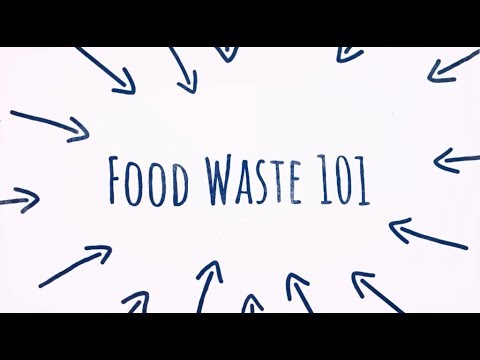Food waste is a huge issue piling up on the world’s dinner plate. And, while the U.S. is fortunate to enjoy one of the most productive and plentiful food supplies in the world, our abundance has also created an enormous trash pile.
Wasted food amounts to major environmental, sustainability, and financial losses. When unused food reaches landfills, large quantities of methane gases are released into the air creating environmental pollution. This loss from our food supply also means a loss in precious natural resources like water, land, animals and energy fuels. In addition to lost resources, we are wasting a lot of money through food waste, too. Experts estimate that the U.S. loses around $161 billion in food annually.
The topic of food waste is a complex problem that occurs at all stages of production from farm to fork. But in industrialized countries like the U.S., nearly 40% of waste occurs in the hands of retailers and consumers. Each year, Americans throw out nearly 35 million tons of food. That equates to about 20 pounds of food waste, per person, each and every month. While you may find these numbers startling, they also mean that you, a consumer, can play a huge role in reducing our annual food waste!
Check out the IFIC Foundation’s video resource below to learn how you can establish your part in reducing national and global food waste.

This post was written by Alison Webster, dietetic intern at Virginia Tech.
